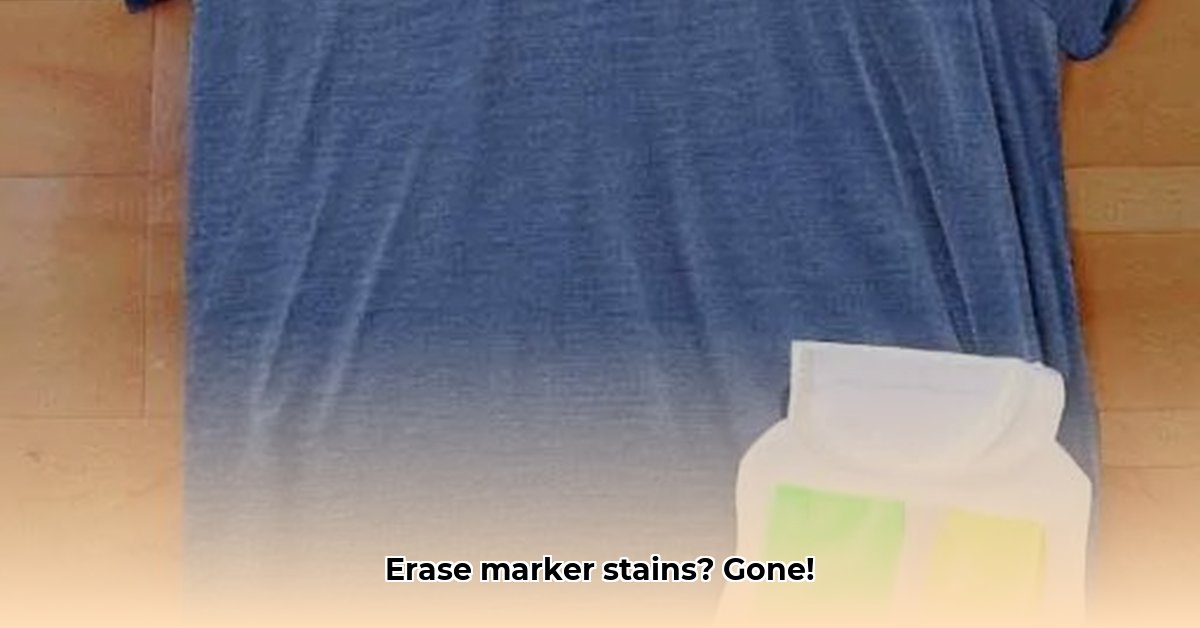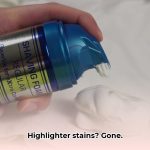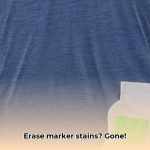Dry erase marker on your favorite shirt? Don’t worry, it’s usually easy to remove. This guide provides simple, step-by-step instructions using common household items. We’ll cover different methods, troubleshooting tips, and even prevention strategies. Let’s get your clothes looking like new again!
Identifying Your Marker and Fabric
Before you begin, knowing the type of dry erase marker and fabric involved can help you choose the most effective cleaning method.
Marker Types
- Water-based: These markers (sometimes called “wet erase”) are generally easier to remove and often come out with dish soap and water.
- Alcohol-based: These are the typical “dry erase” markers and may require a stronger cleaning agent like rubbing alcohol or hand sanitizer. Check the marker packaging if you’re unsure.
Fabric Types
Check the garment’s care tag. Delicate fabrics like silk or wool require gentler treatment than sturdier materials like cotton or denim.
Stain Removal Methods
Method 1: Rubbing Alcohol (For Most Fabrics)
Rubbing alcohol is often the most effective solution, especially for alcohol-based markers.
- Protect: Place a clean towel or paper towels beneath the stained area.
- Dampen: Dampen a cotton ball or clean white cloth with rubbing alcohol.
- Blot: Gently blot the stain, working from the outside in. Avoid rubbing.
- Repeat: Repeat steps 2-3 as needed.
- Launder: Wash the garment as usual.
Method 2: Dish Soap (For Water-Based Markers)
Dish soap is a good option for water-based markers and most fabrics.
- Apply: Place a small amount of dish soap directly onto the stain.
- Rub: Gently rub the stained area with your fingers or a soft-bristled brush.
- Rinse: Rinse thoroughly with cold water.
- Repeat: Repeat steps 1-3 if necessary.
- Launder: Wash the garment as usual.
Method 3: Vinegar (A Gentler Approach)
White vinegar is a milder alternative suitable for delicate fabrics.
- Protect: Place a clean towel beneath the stained area.
- Mix: Create a 50/50 solution of white vinegar and water.
- Apply: Apply the vinegar solution to the stain.
- Wait: Let it sit for 5-10 minutes.
- Blot: Gently blot the stain.
- Repeat: Repeat steps 3-5 if necessary.
- Launder: Wash the garment as usual.
Method 4: Hand Sanitizer (A Convenient Alternative)
Hand sanitizer (containing alcohol) can be a handy substitute for rubbing alcohol. Test on an inconspicuous area first.
- Apply: Apply a small amount of hand sanitizer to the stain.
- Wait: Let it sit for a few minutes.
- Rinse: Rinse thoroughly with cold water.
- Launder: Wash the garment as usual.
Method 5: Other Household Remedies
- Lemon Juice: Similar to vinegar, lemon juice can be effective, especially on lighter fabrics. Apply and blot as with vinegar.
- Baking Soda Paste: Make a paste of baking soda and water. Apply, let dry, brush off, and launder.
- Toothpaste: Some suggest toothpaste might work similarly to baking soda paste, but evidence is anecdotal.
Choosing the Right Method
| Method | Fabric Type | Marker Type | Effectiveness | Notes |
|---|---|---|---|---|
| Rubbing Alcohol | Most fabrics | Alcohol-based | High | Quickest option, test on delicates |
| Dish Soap | Most fabrics | Water-based | Medium | Gentle, readily available |
| Vinegar | Delicates, most fabrics | Both | Medium | Natural, less likely to damage fabrics |
| Hand Sanitizer | Most fabrics | Alcohol-based | Medium | Convenient, test first |
| Lemon Juice | Lighter fabrics | Both | Medium | Natural alternative to vinegar |
| Baking Soda Paste | Most fabrics | Both | Low | May require repeating |
Troubleshooting
Stubborn Stains
- Repeat: Try repeating the chosen method or switch to a different one.
- Soak: Soaking the garment in cold water or oxygen bleach (for whites only) may help loosen the stain.
- Commercial Stain Remover: Use a commercial stain remover designed for ink, but always test in a hidden area first. Enzyme-based cleaners are also a developing area of research for ink stain removal.
- Professional Cleaning: For delicate or valuable items, consider consulting a professional dry cleaner.
Color Bleeding
If you notice any color bleeding, stop immediately and rinse thoroughly with cold water. Professional cleaning is recommended in this case.
Preventing Dry Erase Marker Stains
- Store Markers Properly: Keep markers capped tightly and horizontally to prevent leaks.
- Act Fast: Blot spills immediately with a clean cloth. Avoid rubbing.
- Designated Clothing: If you regularly use dry erase markers near clothes, consider wearing a designated apron or smock.
By following these guidelines, you can likely remove dry erase marker stains effectively. Remember that each stain and fabric is different, so some experimentation may be needed. Good luck!
- How to Get Motor Oil Out of Clothes: Proven Methods & Step-by-Step Guide - April 25, 2025
- How to Get Mothball Smell Out of Clothes: A Complete Guide - April 25, 2025
- How to Get Highlighter Out of Clothes: Easy & Effective Stain Removal Guide - April 25, 2025










